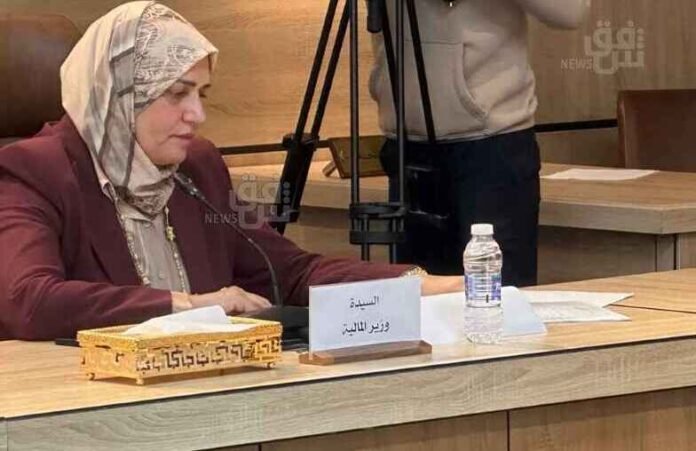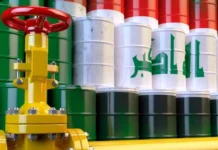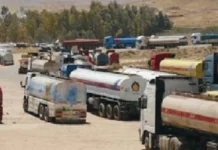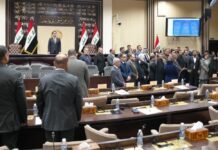Iraq’s Finance Minister Taif Sami announced on Monday that the parliament would soon get the spreadsheets for the 2024 budget.
Sami said such things earlier today in a meeting with the parliamentary budget committee.
She gave them her word that the public employees’ pay are guaranteed in full till 2024.
Regarding the government employees in the Kurdistan area, the minister clarified that the payment of salary for the current month is contingent upon the receipt of comprehensive personnel rosters. For future payments in the area, she said, the ministry has mandated that wages be domiciled in the federal banking system.
Sami verified that money from the operating budget has started to be distributed.
The budget tables for 2024 will be sent to parliament for review following cabinet approval.
The parliamentary finance committee said on Sunday that it will meet with the minister of finance on Monday.
This announcement comes after the Iraqi Ministry of Finance confirmed that steps will be taken to provide steady salary financing in line with the budgets for 2024 and 2025. Additionally, they refuted political assertions implying a deficiency in “financial liquidity.”
The federal government was ordered earlier this month by Iraq’s highest court to pay public sector salaries in the autonomous Kurdistan region, where some employees have not received compensation in months.
In Kurdistan, where officials have long accused Baghdad of not transferring the required funding, civil personnel have protested over unpaid pay and dragged the regional and national authorities to court.
The Supreme Court ruled that the central government will pay public servants, government workers, retirees, and beneficiaries of social benefits directly, rather than through the regional administration. The decision was broadcast on state television.
Public institutions “should coordinate directly with the federal government’s finance ministry to implement” the move, according to Court Chief Jassem al-Omeiri.
In recent weeks, hundreds of teachers in Sulaimaniyah, the second city in the autonomous region, have also taken to the streets to seek compensation for unpaid salary from the previous year. The government workers in Sulaimaniyah launched the lawsuit.
Baghdad had promised to provide Iraqi Kurdistan three yearly payments totaling 700 billion dinars (about $535 million) in September, when it first agreed to boost the amount of money sent to the northern territory.
The region used to have autonomous financing that helped with salary payments because of oil exports.
However, since late March, the regional administration’s only source of income has been hindered by a dispute between the federal government and Turkey, which was the conduit via which the oil was shipped.
Later, Baghdad and Iraqi Kurdistan reached a principled agreement wherein sales of Kurdish oil would proceed through the federal government. The autonomous area will get 12.6% of Iraq’s public spending in return.
In its decision, the court also mandated an assessment of pertinent financial records and the transfer of “all its oil and non-oil revenues” to the federal government by the Kurdish administration.
Since oil earnings have dried up, taxes on border crossings with surrounding nations, such as Iran and Turkey, two of Iraq’s principal regional trading partners, are now the major source of income for Kurdistan.





